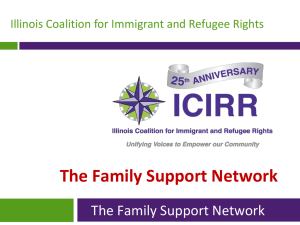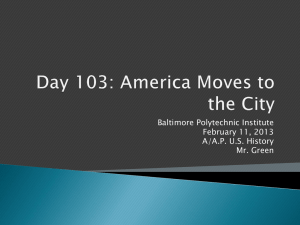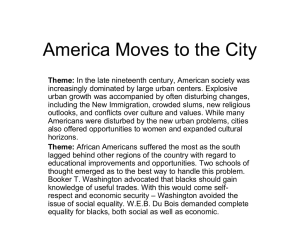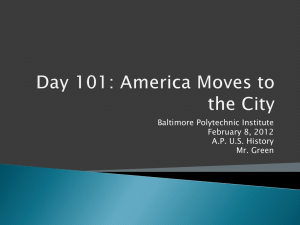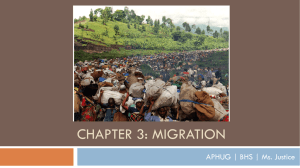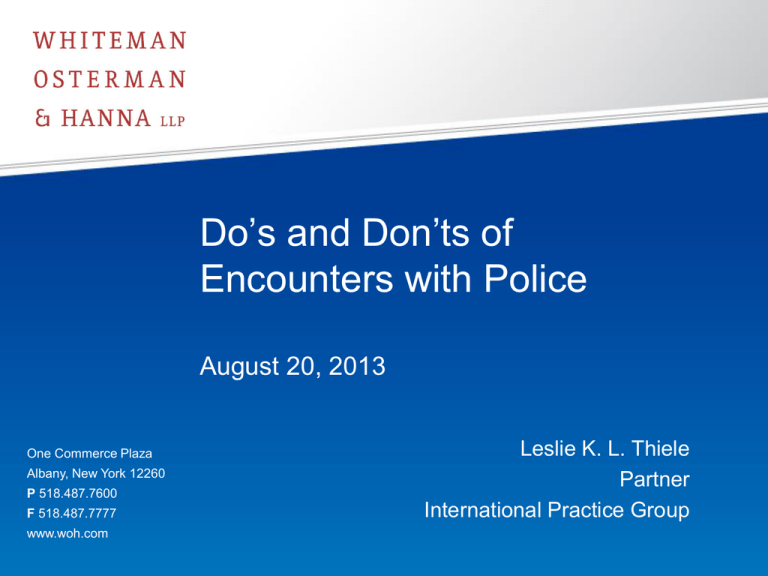
Do’s and Don’ts of
Encounters with Police
August 20, 2013
One Commerce Plaza
Albany, New York 12260
P 518.487.7600
F 518.487.7777
www.woh.com
Leslie K. L. Thiele
Partner
International Practice Group
Introduction
CRIMINAL ACTIONS = IMMIGRATION CONSEQUENCES
▪ What conduct to avoid AT ALL COSTS
▪ Managing the immigration consequences
LIKELY TO HAVE OTHER INTERACTION WITH LAW ENFORCEMENT
▪ Speeding tickets, loud parties with alcohol or weed, accidents
▪ CBP/USCIS: routine stops in border area
POLICE INTERACTION
▪ What to expect from the police
▪ How to handle yourself if stopped or questioned
▪ What to do if arrested
DEALING WITH IMMIGRATION STOPS
1
Stay Out of BAD Trouble
WHAT TYPES OF CRIMINAL OR STUPID ACTIVITY TO AVOID?
▪ Drug offenses of any type, even just admission of use
- One offense/less than 30 g not deportable, but still visa issues
- 30+ g. of marijuana = you may never see the US again
▪ Crimes of violence: don’t pick a fight with anyone
▪ Drunk driving
▪ CIMT – Crimes Involving Moral Turpitude
Most theft or fraud offenses
Most sex crimes (can include CONSENSUAL sex with a minor)
Many assault offenses
IF YOU WOULDN’T DO IT AT HOME, DON’T DO IT HERE, EVEN IF THE
AMERICANS ARE DOING IT!
2
Immigration Consequences of Trouble
LONG-TERM IMMIGRATION CONSEQUENCES
▪ Immigration applications: have you COMMITTED a crime,
even if not arrested?.
Disclosure/possible denial vs. visa fraud for non-disclosure
▪ Arrests fingerprinting your name pops up in criminal
databases
EVEN IF the charges are dismissed
▪ Future visas may be delayed for background checks
▪ May be stopped by CBP at EVERY future entry into the US
CONVICTION: all of the above AND
▪ Possible removal/deportation from the U.S
▪ Ten-year bar to re-entry unless waiver obtained
3
Benign Police Stops
COMMON REASONS FOR POLICE STOPS
▪
You’re at a loud party and the neighbors complained.
▪
There’s been a crime in your neighborhood and police are
investigating
WHAT TO DO IF THE POLICE ARE ASKING YOU QUESTIONS?
▪ Do not run or hide: those are suspicious behaviors
▪ Don’t hesitate to ask for a translator
▪ Tell the truth as you know it: do not hesitate to say “I don’t know” or
I didn’t see” or “I am not sure”.
▪ Remember that fighting crime requires the population to help the
police with information
4
If You Are Arrested
REMEMBER THE MIRANDA WARNINGS:
▪ You have the right to remain silent
▪ Your silence cannot be used against you
▪ Anything you say can and will be used against you in court.
▪ You have the right to an attorney
▪ If you can’t afford an attorney, one will be appointed for you.
ASK FOR A TRANSLATOR, EVEN IF YOUR ENGLISH IS GOOD
▪ Lots of jargon and slang which is hard to understand
▪ Do not answer any question you do not understand.
TELL THE POLICE IMMEDIATELY IF YOU HAVE ANY MEDICAL ISSUES
(diabetes, medications, etc.)
5
If You Are Arrested - 2
THEN TAKE THE FOLLOWING STEPS
▪
Call the Foreign Student Office: they know how to help you and
have contacts to attorneys
▪ Ask for an attorney: do not answer any questions or sign any
statements or documents without an attorney, no matter what you are
promised.
▪ Tell the attorney that you are a foreign student and that there may be
immigration issues
▪ Notify your consulate, which will also have legal consultants
PROCESS:
▪ Arraigned before a judge, and then generally allowed to leave
.
▪ “Real” hearings come later: don’t go without an attorney
6
Immigration Stops
IMMIGRATION ENFORCEMENT HAS INCREASED
▪ Secure Communities Initiative: involving local police in immigration
enforcement.
▪ Hundreds of new investigators for CBP (border patrol) and ICE
(immigration police)
▪ Focus on immigrants who violate laws and illegal entry: not YOU
IMMIGRATION STOPS: EXAMPLES
▪ You are on a bus from Albany to Plattsburgh for a weekend visit, and
Customs & Border Protection is checking documents
▪ You drive up to Lake George with friends and there is a checkpoint
for illegal aliens coming down from Canada
7
Be Ready for Immigration Stops
CARRY THE REQUIRED DOCUMENTATION
▪ Law requires you to carry your passport and proof of immigration
status at ALL times
▪ Failure to have proof of status is a deportable offense
▪ Locally: copy of your passport data page and I-94 sufficient; bring
originals on longer trips
▪ Print out your I-94 from CBP website: www.cbp.gov/I94
DON’T PUT YOURSELF AT RISK WITH DEPORTABLE OFFENSES
▪ Don’t go places where you know there are drugs or get into cars
where there may be drugs or alcohol
▪ Don’t work illegally: make sure ‘volunteer’ chances are genuine
▪ Change of address: notify your DSO IMMEDIATELY
8
If You ARE Stopped….
DON’T PANIC!
:
▪
Remember that you are here legally, and can prove it
▪
Don’t talk until you understand what you are asked. Ask for a
translator if you need to.
WHEN QUESTIONED:
▪
Present your documents showing your legal status (passport, I-94)
▪
Give your name, US address, date of birth, country of citizenship
▪
Do not volunteer information you are not asked for
Answer the questions asked, and then STOP TALKING
▪
Always have the DSO’s telephone number with you if you need help
9
Conclusion
MOST FOREIGN STUDENTS HAVE NO TROUBLE WITH THE LAW
▪ Be smart
▪ Behave responsibly
▪ Be careful of illegal substances and alcohol if you are under 21
▪ Maintain proper SEVIS status
DON’T BE AFRAID OF THE POLICE IF YOU NEED THEM
▪ Police generally trustworthy in the US (individual exceptions)
▪ Will treat you as you treat them
ASK THE FOREIGN STUDENT ADVISORS IF YOU HAVE QUESTIONS
ENJOY YOUR TIME HERE IN THE U.S.!!
10
Contact Information
The information in this presentation is intended as general background information on issues for
international students. It is not to be considered as legal advice with regard to any particular
student’s situation. Students with further questions should contact their DSO.
Leslie K. L. Thiele
Partner
Immigration Practice Group
Tel: (518) 487-7636
lthiele@woh.com
© 2013 Whiteman Osterman & Hanna LLP
WHITEMAN OSTERMAN & HANNA LLP
One Commerce Plaza
99 Washington Avenue
Albany, New York 12260
All rights reserved
11




